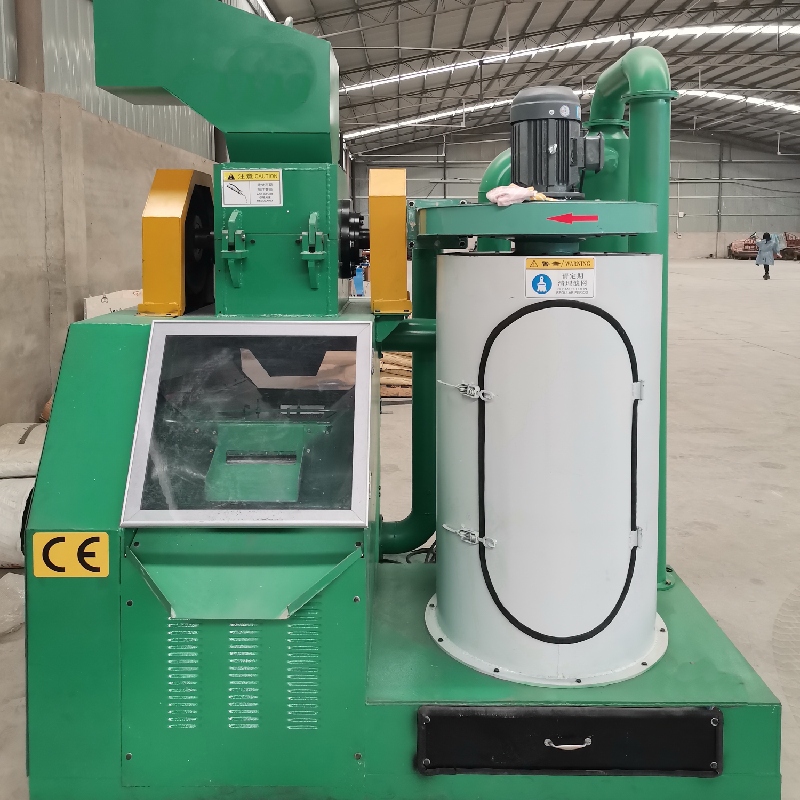

ធ្នូ . 04, 2024 18:10 Back to list
The Rise of Aluminum Shredders Transforming Recycling Efficiency
In recent years, the global focus on sustainability and environmental conservation has significantly increased. Industries are continuously seeking innovative solutions to minimize waste and maximize recycling efficiency. One area that has gained considerable attention is aluminum recycling. With the advent of aluminum shredders, the recycling process has become more efficient, leading to numerous environmental and economic benefits.
Aluminum is one of the most recyclable materials available. It can be recycled indefinitely without losing its properties, making it a valuable resource in the circular economy. However, the efficiency of aluminum recycling largely depends on the effectiveness of the shredding process. This is where aluminum shredders come into play, offering robust solutions for breaking down aluminum scrap into manageable sizes for processing.
Aluminum shredders are specialized machines designed to crush and shred aluminum waste, such as scrap cans, automotive parts, and construction materials, into smaller pieces. The primary objective of these machines is to reduce the size of the aluminum scrap so that it can be easily transported and processed. The shredding process is crucial for increasing the surface area of the aluminum, making it easier for subsequent processing stages, like melting and purification.
The operation of an aluminum shredder typically begins with the input of aluminum scrap into the machine. The shredder consists of sharp, rotating blades or hammers that exert tremendous force, breaking down the aluminum into pieces of varying sizes. The design of these machines allows them to handle a wide range of aluminum products, including both ferrous and non-ferrous materials. This versatility has made aluminum shredders a vital part of recycling facilities around the world.

One significant advantage of aluminum shredders is their ability to improve operational efficiency. Traditional aluminum recycling methods often involved manual sorting and processing, which is both time-consuming and labor-intensive. Shredders automate much of this process, significantly reducing the need for manual labor and increasing processing speeds. As a result, recycling facilities can handle greater volumes of aluminum scrap, which boosts overall productivity.
From an environmental standpoint, the use of aluminum shredders contributes to reduced energy consumption. Recycling aluminum consumes only about 5% of the energy required to produce new aluminum from bauxite ore. By shredding and efficiently processing aluminum scrap, shredders enable a higher recycling rate, effectively lowering the overall carbon footprint associated with aluminum production. This transition to a more sustainable recycling process aligns with global initiatives aimed at reducing waste and combatting climate change.
Furthermore, the quality of recycled aluminum produced using shredders is often superior to that obtained through other methods. During the shredding process, valuable aluminum materials are separated from contaminants, providing cleaner output that enhances the quality of recycled products. This high-quality aluminum can then be sold at competitive prices, boosting the profitability of recycling facilities and encouraging further investment in sustainable practices.
The market for aluminum shredders is experiencing significant growth, driven by increasing aluminum consumption and stricter regulations on waste disposal. Industries are now recognizing the value of investing in advanced shredding technologies that not only enhance efficiency but also promote responsible resource management. As the demand for aluminum recycling continues to rise, innovations in aluminum shredder technology are expected to evolve, incorporating features such as energy-efficient motors, advanced control systems, and smarter integration with other recycling processes.
In conclusion, aluminum shredders play a crucial role in transforming recycling efficiency. They not only streamline the shredding process, allowing for quicker and more effective recycling, but they also contribute to sustainability efforts by reducing energy consumption and improving the quality of recycled materials. As society continues to prioritize environmental responsibility, the importance of aluminum shredders in the recycling industry will only grow. Investing in these technologies is not just a step toward operational efficiency; it is a commitment to fostering a sustainable future for generations to come.
Latest news
Troubleshooting Common Eddy Separator Problems
NewsJul.04,2025
The Role of Metal Recycling Plants in Circular Economy
NewsJul.04,2025
The Impact of Recycling Line Pickers on Waste Management Costs
NewsJul.04,2025
Safety Features Every Metal Shredder Should Have
NewsJul.04,2025
How Industrial Shredders Improve Waste Management Systems
NewsJul.04,2025
How Cable Granulators Contribute to Sustainable Recycling
NewsJul.04,2025